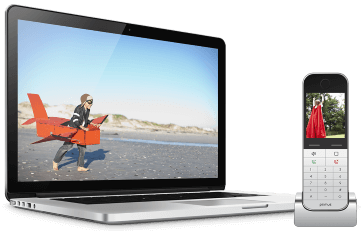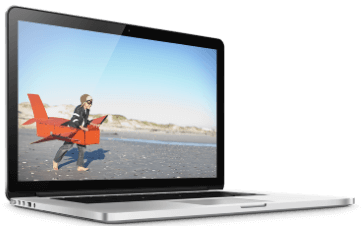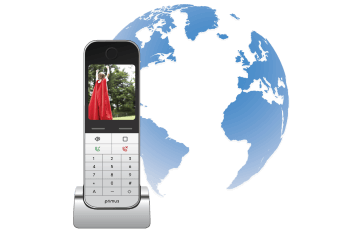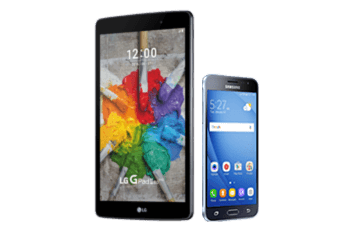Brought to you by Primus - a smart choice for your Internet and Home Phone services.
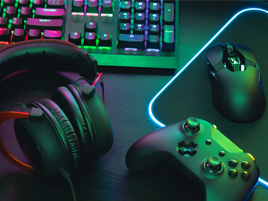
Considering getting a gaming platform for yourself or your family? Here are a few things to consider.
Cost (Upfront)
Your costs for a console are mostly one and done. A Nintendo Switch runs about $400, a Sony PS5 about $650, and an Xbox Series X about $600—although at times you can get a deal or find a refurbished or second-hand one on the secondary market. You may also have to spring for an extra or better controller (those are starting to go for $60 through $90), but that’s usually about it. You buy it, you plug it in, you’re good to go.
A gaming PC will be at least $1,000 for an inexpensive one; $1,500 is more likely, but if you build your own you can make it as powerful and expensive as you want. $5,000 is not unheard of, especially once you start factoring in things like dual 4K screens, a pro gaming chair, and the best possible graphics card.
Winner: Console gaming
Cost (Over Time)
After four to six years, your console maker of choice will have a new latest-and-greatest console out there. They’ll support the previous generation for a year or two, but after that, if you want to play new games, you’ll have to upgrade and buy a whole new console.
Your gaming PC will likely last longer than the lifespan of a console generation, particularly when you factor in your ability to swap out new parts. Even if you aren’t doing that yourself, you can easily pay someone to upgrade your PC. And keep in mind that you’re likely to hold on to certain parts for much longer. For example, you might choose to upgrade your graphics card after a few years but keep your fancy 4K monitor for a whole decade. You probably won’t need to upgrade any of your peripherals for a decade and, as long as you’re monitoring compatibility, you can likely spring for a new internal part every few years or so and just keep upgrading your PC in perpetuity.
Winner: PC gaming
Cost (Games)
Nintendo doesn’t like to do special sales. You pay full price for their new and new-ish games, and you pay a lot of money for their very old games too—even if you’ve bought them many times before.
Sony PlayStation and Xbox have services that offer you hundreds of games—PlayStation Plus and Xbox Game Pass, respectively. For a monthly fee you get access to hundreds of games.
On the PC, you have access to dozens of online stores, such as Steam, Epic, GOG, Humble, and more that offer great deals and regular game sales.
Winner: Everyone but Nintendo
Backward Compatibility
Want to play an older game from time to time? Well . . .
Nintendo has much of their older game library available, for a price. For example, you could play Super Mario 64 by buying Super Mario 3D All-Stars for $100.
Xbox X Series can play Xbox One games. And there are some Xbox 360 and original Xbox games that are backward compatible, but you’d have to check a list. Most Xbox gamers just pay for the previously mentioned Game Pass, which has many older games.
PlayStation 5 can play many but not all PS4 games. Again, most PlayStation gamers just use PlayStation Plus to access older games.
Your PC can play nearly any PC game from the past 20 years. If you’re having trouble running a game on Windows 11, you can check the forum of the store where you bought the game and you’ll find someone who has written a helpful troubleshooting guide.
Winner: PC gaming
Games Library
Nintendo has a lot of exclusive titles. If you want to play a Mario game, you’re playing it on a Nintendo. That’s just how it is, that’s how it’s been for three decades, and we doubt it’s changing anytime soon.
PlayStation has a lot of Sony-exclusive titles, such as Ghost of Tsushima and God of War: Ragnarök. However, it’s worth noting that many of their formerly exclusive titles, such as Red Dead Redemption 2 and Last of Us have come out on the PC.
Xbox doesn’t have many exclusive titles. Many online lists of so-called Xbox exclusives include games that are coming out on Windows, which is obviously a PC operating system. Given that Microsoft owns Xbox, it doesn’t make much sense for them to release stuff that’s only for their console but not their PC market.
There are still games that only come out for the PC gaming market, but these are few and far between. Most PC games also get released to one or more console platforms.
Winner: No one. Customers definitely don’t win when there are games exclusive to specific platforms, because that means you either have to buy said platform or go without the game you want. One could argue that PC gaming is the winner because PC users get access to the largest possible library, but again, if there’s a game you really, really want and it’s on, say, the Nintendo, then Nintendo’s your winner.
Ease of Use
Consoles are typically plug in and play. You may have to do some troubleshooting here and there—and maybe even take it in to specialized repair if you’re in some real trouble, but that’s about it. Anyone can follow the instructions to set up a console, and they’re easy to keep running.
PCs are a bit more trouble. Anyone who can follow a YouTube video can build their own gaming PC—it’s just like expensive Lego for adults. But even if you aren’t building your own computer, computers are a little more work. There’s more to set up, there’s more software to keep updated, and there’s just more troubleshooting in general. This is all stuff you can do with an inquiring mind and a little googling, but it’s worth noting that issues will crop up.
Winner: Console gaming

